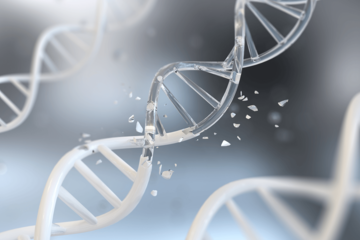We found 32 results that contain "technology"
Posted on: #iteachmsu

PEDAGOGICAL DESIGN
Careers for iGen'ers - You Need Either Skills or Education: Test article
Careers for iGen'ers - You Need Either Skills or Education
If you are iGen and looking for a career, please pick a major in fields where there will be plenty of jobs and avoid fields where the jobs are limited. Unless of course you are so different and truly one of a kind like: Michael Jordan, Prince, The Beatles, Albert Einstein, Bill Gates, Elon Musk, Kim Kardashian (just kidding).
You have two choices - pick a trade or get the right college education. Low skilled jobs will continue to disappear and you can not raise a family on the income from a low skilled job. You either need skills or education.
Healthcare and high tech are the booming fields now and that will continue for decades.
Thus careers in science, engineering, software, and medicine are a good choice.
There won't be many jobs for people who major in English, history, philosophy etc. Sorry.
If you want help choosing a new career, or making those big career decisions, check out my career counseling services.
Electrical Engineering and Software Engineering look really good. As does nursing, and being a family doctor.
Civil Engineering offers very few jobs since we are not building a lot of bridges and buildings. So avoid that.
Automotive engineering is tough. Not many US jobs except in the electric car field.
Jobs that must be done in person such as plumbers, electricians, barbers, beauticians, should still be in demand, although lower paying than jobs requiring a college education. The trades are more stable than many other careers.
Sales jobs will continue to shrink. Retails sales jobs are disappearing as shopping malls close and as Amazon takes over the world. Sales people are usually just middlemen. Who needs them? Sorry... However, sales people that do business development and find new customers are a different story. But the days of being a shoe salesman in a mall store are gone.
Business development and marketing are still good fields, but will see some unexpected changes.
The auto mechanic field is going to go through interesting changes with the growth of electric vehicles and self driving vehicles. EV's have less moving parts and fewer fluids to replace, but they still need tire changes.
Taxi driver jobs and truck driver jobs will start to experience less demand as automated vehicles take over. However, as of 2018, the demand for truck drivers is booming.
As automated electric vehicles take over, the need for individuals to own a car will be reduced. It will become more simple, less expensive, and more efficient to just walk outside, call up an app, have a driver-less Uber pick you up and take you to wherever you want to go. As long as a car can show up in 5 minutes or so, that will be the way to go. Owning your own car is not efficient, nor a good investment. Cars sit around doing nothing for 98% of their existence. They take up space, they consume your money on insurance and repairs even while they are just sitting doing nothing. How this will affect jobs, careers and the workplace will be interesting, and iGen'ers will be the first to experience this.
Space flight related jobs will pick up as we focus on getting people to the moon, Mars, and space stations.
Geology jobs, especially related to finding minerals on other planets should see a rise in demand.
Virtual Reality related jobs (whatever those are?) will pick up as VR technology becomes ubiquitous. Probably creating VR experiences will be popular.
The generation after the iGen'ers will be the ones who grow up thinking virtual reality is normal.
If you are iGen and looking for a career, please pick a major in fields where there will be plenty of jobs and avoid fields where the jobs are limited. Unless of course you are so different and truly one of a kind like: Michael Jordan, Prince, The Beatles, Albert Einstein, Bill Gates, Elon Musk, Kim Kardashian (just kidding).
You have two choices - pick a trade or get the right college education. Low skilled jobs will continue to disappear and you can not raise a family on the income from a low skilled job. You either need skills or education.
Healthcare and high tech are the booming fields now and that will continue for decades.
Thus careers in science, engineering, software, and medicine are a good choice.
There won't be many jobs for people who major in English, history, philosophy etc. Sorry.
If you want help choosing a new career, or making those big career decisions, check out my career counseling services.
Electrical Engineering and Software Engineering look really good. As does nursing, and being a family doctor.
Civil Engineering offers very few jobs since we are not building a lot of bridges and buildings. So avoid that.
Automotive engineering is tough. Not many US jobs except in the electric car field.
Jobs that must be done in person such as plumbers, electricians, barbers, beauticians, should still be in demand, although lower paying than jobs requiring a college education. The trades are more stable than many other careers.
Sales jobs will continue to shrink. Retails sales jobs are disappearing as shopping malls close and as Amazon takes over the world. Sales people are usually just middlemen. Who needs them? Sorry... However, sales people that do business development and find new customers are a different story. But the days of being a shoe salesman in a mall store are gone.
Business development and marketing are still good fields, but will see some unexpected changes.
The auto mechanic field is going to go through interesting changes with the growth of electric vehicles and self driving vehicles. EV's have less moving parts and fewer fluids to replace, but they still need tire changes.
Taxi driver jobs and truck driver jobs will start to experience less demand as automated vehicles take over. However, as of 2018, the demand for truck drivers is booming.
As automated electric vehicles take over, the need for individuals to own a car will be reduced. It will become more simple, less expensive, and more efficient to just walk outside, call up an app, have a driver-less Uber pick you up and take you to wherever you want to go. As long as a car can show up in 5 minutes or so, that will be the way to go. Owning your own car is not efficient, nor a good investment. Cars sit around doing nothing for 98% of their existence. They take up space, they consume your money on insurance and repairs even while they are just sitting doing nothing. How this will affect jobs, careers and the workplace will be interesting, and iGen'ers will be the first to experience this.
Space flight related jobs will pick up as we focus on getting people to the moon, Mars, and space stations.
Geology jobs, especially related to finding minerals on other planets should see a rise in demand.
Virtual Reality related jobs (whatever those are?) will pick up as VR technology becomes ubiquitous. Probably creating VR experiences will be popular.
The generation after the iGen'ers will be the ones who grow up thinking virtual reality is normal.
Authored by:
Chathuri
Posted on: #iteachmsu

Careers for iGen'ers - You Need Either Skills or Education: Test article
Careers for iGen'ers - You Need Either Skills or Education
If you a...
If you a...
Authored by:
PEDAGOGICAL DESIGN
Tuesday, Oct 15, 2019
Posted on: #iteachmsu

Genetics and Molecular Biology
http://www.scielo.br/revistas/gmb/iaboutj.htm#001
https://venturit.atlassian.net/browse/IT-1478
Genetics and Molecular Biology is abstracted or indexed in:
PubMed
Science Citacion Index Expanded
Current Contents/Life Sciences
ISI Web of Science
Biotechnology Citation Index
Biological Abstracts
Excerpta Medica
Genetics Abstracts
Animal Breeding Abstracts
Plant Breeding Abstracts
Chemical Abstracts
Referativnyi Zhurnal (Abstracts Journal, Russia)
Periódica (UNAM-Mexico)
Lilacs
https://venturit.atlassian.net/browse/IT-1478
Genetics and Molecular Biology is abstracted or indexed in:
PubMed
Science Citacion Index Expanded
Current Contents/Life Sciences
ISI Web of Science
Biotechnology Citation Index
Biological Abstracts
Excerpta Medica
Genetics Abstracts
Animal Breeding Abstracts
Plant Breeding Abstracts
Chemical Abstracts
Referativnyi Zhurnal (Abstracts Journal, Russia)
Periódica (UNAM-Mexico)
Lilacs
Posted by:
Chathuri Super admin..

Posted on: #iteachmsu


Genetics and Molecular Biology
http://www.scielo.br/revistas/gmb/iaboutj.htm#001
https://venturit....
https://venturit....
Posted by:
Wednesday, Dec 23, 2020
Posted on: #iteachmsu

ASSESSING LEARNING
Online Education
Even when things like ticket booking, watching TV shows, ordering food is becoming online, education is still behind in terms of online education delivery. Due to the easy availability of internet, the number of internet users is increasing rapidly. The increasing number of Smartphone users is providing a good opportunity to deliver education online.
Online education which includes online courses and online examinations are slowly and surely becoming popular due to the interest shown by the working professionals to learn new things and expand their knowledge about technology. More number of organizations like Byju’s is emerging to target online education for students.
https://www.youtube.com/watch?v=kyJnjO8cG30&ab_channel=BankPro
Online education which includes online courses and online examinations are slowly and surely becoming popular due to the interest shown by the working professionals to learn new things and expand their knowledge about technology. More number of organizations like Byju’s is emerging to target online education for students.
https://www.youtube.com/watch?v=kyJnjO8cG30&ab_channel=BankPro
Authored by:
Divya Sawant

Posted on: #iteachmsu


Online Education
Even when things like ticket booking, watching TV shows, ordering f...
Authored by:
ASSESSING LEARNING
Wednesday, Dec 23, 2020
Posted on: #iteachmsu

DISCIPLINARY CONTENT
Maintaining Student Academic Records
In the current scenario, mark sheet of the individual students are maintained by respective universities. No third party authority or any person is appointed to validate the marks or degree obtained by the student as per records of the university. If the universities decide to verify each student’s mark sheet or certificate then entire process will have to be carried out manually.
Block chain technology can help to eliminate such issues by offering features such as information collaboration and validation which can help to validate the student degree or marks obtained. We can see more new concepts and ideas related to collaboration oriented processes in block chain especially developed for education sector.
Block chain technology can help to eliminate such issues by offering features such as information collaboration and validation which can help to validate the student degree or marks obtained. We can see more new concepts and ideas related to collaboration oriented processes in block chain especially developed for education sector.
Authored by:
Divya Sawant

Posted on: #iteachmsu


Maintaining Student Academic Records
In the current scenario, mark sheet of the individual students are ...
Authored by:
DISCIPLINARY CONTENT
Wednesday, Dec 23, 2020
Posted on: #iteachmsu

ASSESSING LEARNING
Industrial Revolution 4.0
What better way to start this new century than to go over the pros and cons of the 4th Industrial Revolution. The 4th industrial revolution is a term coined by Professor Klaus Schwab. He is the founder and Executive chairman of the World Economic Forum, so he has some good credentials. He described the 4th industrial revolution as a “current and developing environment in which disruptive technologies and trends such as the Internet of Things, robotics, virtual reality and Artificial Intelligence are changing the way people live and work”. So this is the era of AI and machine learning, genome editing, 3D printing, Internet of Things, augmented reality, autonomous vehicles, and much more. And we’re not talking about the future here. These things are currently affecting our personal and work life and they are ever evolving.
Authored by:
Divya Sawant
Posted on: #iteachmsu

Industrial Revolution 4.0
What better way to start this new century than to go over the pros ...
Authored by:
ASSESSING LEARNING
Friday, Nov 13, 2020
Posted on: #iteachmsu

DISCIPLINARY CONTENT
What is natural language processing?
Natural language processing (NLP) refers to the branch of computer science—and more specifically, the branch of artificial intelligence or AI—concerned with giving computers the ability to understand text and spoken words in much the same way human beings can.
NLP combines computational linguistics—rule-based modeling of human language—with statistical, machine learning, and deep learning models. Together, these technologies enable computers to process human language in the form of text or voice data and to ‘understand’ its full meaning, complete with the speaker or writer’s intent and sentiment. https://byjus.com/biology/flower/
NLP drives computer programs that translate text from one language to another, respond to spoken commands, and summarize large volumes of text rapidly—even in real time. There’s a good chance you’ve interacted with NLP in the form of voice-operated GPS systems, digital assistants, speech-to-text dictation software, customer service chatbots, and other consumer conveniences. But NLP also plays a growing role in enterprise solutions that help streamline business operations, increase employee productivity, and simplify mission-critical business processehttps://byjus.com/biology/flower/
NLP combines computational linguistics—rule-based modeling of human language—with statistical, machine learning, and deep learning models. Together, these technologies enable computers to process human language in the form of text or voice data and to ‘understand’ its full meaning, complete with the speaker or writer’s intent and sentiment. https://byjus.com/biology/flower/
NLP drives computer programs that translate text from one language to another, respond to spoken commands, and summarize large volumes of text rapidly—even in real time. There’s a good chance you’ve interacted with NLP in the form of voice-operated GPS systems, digital assistants, speech-to-text dictation software, customer service chatbots, and other consumer conveniences. But NLP also plays a growing role in enterprise solutions that help streamline business operations, increase employee productivity, and simplify mission-critical business processehttps://byjus.com/biology/flower/
Authored by:
Pranjali

Posted on: #iteachmsu


What is natural language processing?
Natural language processing (NLP) refers to the branch of computer ...
Authored by:
DISCIPLINARY CONTENT
Wednesday, Dec 6, 2023
Posted on: #iteachmsu

ASSESSING LEARNING
THE TOP MYTHS ABOUT ADVANCED AI
common myths
for Advanced
AI:A captivating conversation is taking place about the future of artificial intelligence and what it will/should mean for humanity. There are fascinating controversies where the world’s leading experts disagree, such as AI’s future impact on the job market; if/when human-level AI will be developed; whether this will lead to an intelligence explosion; and whether this is something we should welcome or fear. But there are also many examples of boring pseudo-controversies caused by people misunderstanding and talking past each other.
TIMELINE MYTHS
The first myth regards the timeline: how long will it take until machines greatly supersede human-level intelligence? A common misconception is that we know the answer with great certainty.
One popular myth is that we know we’ll get superhuman AI this century. In fact, history is full of technological over-hyping. Where are those fusion power plants and flying cars we were promised we’d have by now? AI has also been repeatedly over-hyped in the past, even by some of the founders of the field. For example, John McCarthy (who coined the term “artificial intelligence”), Marvin Minsky, Nathaniel Rochester, and Claude Shannon wrote this overly optimistic forecast about what could be accomplished during two months with stone-age computers: “We propose that a 2 month, 10 man study of artificial intelligence be carried out during the summer of 1956 at Dartmouth College […] An attempt will be made to find how to make machines use language, form abstractions, and concepts, solve kinds of problems now reserved for humans, and improve themselves. We think that a significant advance can be made in one or more of these problems if a carefully selected group of scientists work on it together for a summer.”
CONTROVERSY MYTHS
Another common misconception is that the only people harboring concerns about AI and advocating AI safety research are Luddites who don’t know much about AI. When Stuart Russell, author of the standard AI textbook, mentioned this during his Puerto Rico talk, the audience laughed loudly. A related misconception is that supporting AI safety research is hugely controversial. In fact, to support a modest investment in AI safety research, people don’t need to be convinced that risks are high, merely non-negligible — just as a modest investment in home insurance is justified by a non-negligible probability of the home burning down.
for Advanced
AI:A captivating conversation is taking place about the future of artificial intelligence and what it will/should mean for humanity. There are fascinating controversies where the world’s leading experts disagree, such as AI’s future impact on the job market; if/when human-level AI will be developed; whether this will lead to an intelligence explosion; and whether this is something we should welcome or fear. But there are also many examples of boring pseudo-controversies caused by people misunderstanding and talking past each other.
TIMELINE MYTHS
The first myth regards the timeline: how long will it take until machines greatly supersede human-level intelligence? A common misconception is that we know the answer with great certainty.
One popular myth is that we know we’ll get superhuman AI this century. In fact, history is full of technological over-hyping. Where are those fusion power plants and flying cars we were promised we’d have by now? AI has also been repeatedly over-hyped in the past, even by some of the founders of the field. For example, John McCarthy (who coined the term “artificial intelligence”), Marvin Minsky, Nathaniel Rochester, and Claude Shannon wrote this overly optimistic forecast about what could be accomplished during two months with stone-age computers: “We propose that a 2 month, 10 man study of artificial intelligence be carried out during the summer of 1956 at Dartmouth College […] An attempt will be made to find how to make machines use language, form abstractions, and concepts, solve kinds of problems now reserved for humans, and improve themselves. We think that a significant advance can be made in one or more of these problems if a carefully selected group of scientists work on it together for a summer.”
CONTROVERSY MYTHS
Another common misconception is that the only people harboring concerns about AI and advocating AI safety research are Luddites who don’t know much about AI. When Stuart Russell, author of the standard AI textbook, mentioned this during his Puerto Rico talk, the audience laughed loudly. A related misconception is that supporting AI safety research is hugely controversial. In fact, to support a modest investment in AI safety research, people don’t need to be convinced that risks are high, merely non-negligible — just as a modest investment in home insurance is justified by a non-negligible probability of the home burning down.
Authored by:
Rupali

Posted on: #iteachmsu


THE TOP MYTHS ABOUT ADVANCED AI
common myths
for Advanced
AI:A captivating conversation is taking p...
for Advanced
AI:A captivating conversation is taking p...
Authored by:
ASSESSING LEARNING
Monday, Jan 11, 2021
Posted on: #iteachmsu

DISCIPLINARY CONTENT
Web Content Accessibility Guidelines (WCAG) 2.2
Web Content Accessibility Guidelines (WCAG) 2.2 defines how to make Web content more accessible to people with disabilities. Accessibility involves a wide range of disabilities, including visual, auditory, physical, speech, cognitive, language, learning, and neurological disabilities. Although these guidelines cover a wide range of issues, they are not able to address the needs of people with all types, degrees, and combinations of disability. These guidelines also make Web content more usable by older individuals with changing abilities due to aging and often improve usability for users in general.
WCAG 2.2 is developed through the W3C process in cooperation with individuals and organizations around the world, with a goal of providing a shared standard for Web content accessibility that meets the needs of individuals, organizations, and governments internationally. WCAG 2.2 builds on WCAG 2.0 [WCAG20] and WCAG 2.1 [WCAG21], which in turn built on WCAG 1.0 [WAI-WEBCONTENT] and is designed to apply broadly to different Web technologies now and in the future, and to be testable with a combination of automated testing and human evaluation. For an introduction to WCAG, see the Web Content Accessibility Guidelines (WCAG) Overview.
Significant challenges were encountered in defining additional criteria to address cognitive, language, and learning disabilities, including a short timeline for development as well as challenges in reaching consensus on testability, implementability, and international considerations of proposals. Work will carry on in this area in future versions of WCAG. We encourage authors to refer to our supplemental guidance on improving inclusion for people with disabilities, including learning and cognitive disabilities, people with low-vision, and more.
Web accessibility depends not only on accessible content but also on accessible Web browsers and other user agents. Authoring tools also have an important role in Web accessibility. For an overview of how these components of Web development and interaction work together, see:
Essential Components of Web Accessibility
User Agent Accessibility Guidelines (UAAG) Overview
Authoring Tool Accessibility Guidelines (ATAG) Overview
Where this document refers to WCAG 2 it is intended to mean any and all versions of WCAG that start with 2.
WCAG 2.2 is developed through the W3C process in cooperation with individuals and organizations around the world, with a goal of providing a shared standard for Web content accessibility that meets the needs of individuals, organizations, and governments internationally. WCAG 2.2 builds on WCAG 2.0 [WCAG20] and WCAG 2.1 [WCAG21], which in turn built on WCAG 1.0 [WAI-WEBCONTENT] and is designed to apply broadly to different Web technologies now and in the future, and to be testable with a combination of automated testing and human evaluation. For an introduction to WCAG, see the Web Content Accessibility Guidelines (WCAG) Overview.
Significant challenges were encountered in defining additional criteria to address cognitive, language, and learning disabilities, including a short timeline for development as well as challenges in reaching consensus on testability, implementability, and international considerations of proposals. Work will carry on in this area in future versions of WCAG. We encourage authors to refer to our supplemental guidance on improving inclusion for people with disabilities, including learning and cognitive disabilities, people with low-vision, and more.
Web accessibility depends not only on accessible content but also on accessible Web browsers and other user agents. Authoring tools also have an important role in Web accessibility. For an overview of how these components of Web development and interaction work together, see:
Essential Components of Web Accessibility
User Agent Accessibility Guidelines (UAAG) Overview
Authoring Tool Accessibility Guidelines (ATAG) Overview
Where this document refers to WCAG 2 it is intended to mean any and all versions of WCAG that start with 2.
Authored by:
Vijaya

Posted on: #iteachmsu


Web Content Accessibility Guidelines (WCAG) 2.2
Web Content Accessibility Guidelines (WCAG) 2.2 defines how to make...
Authored by:
DISCIPLINARY CONTENT
Monday, May 6, 2024


